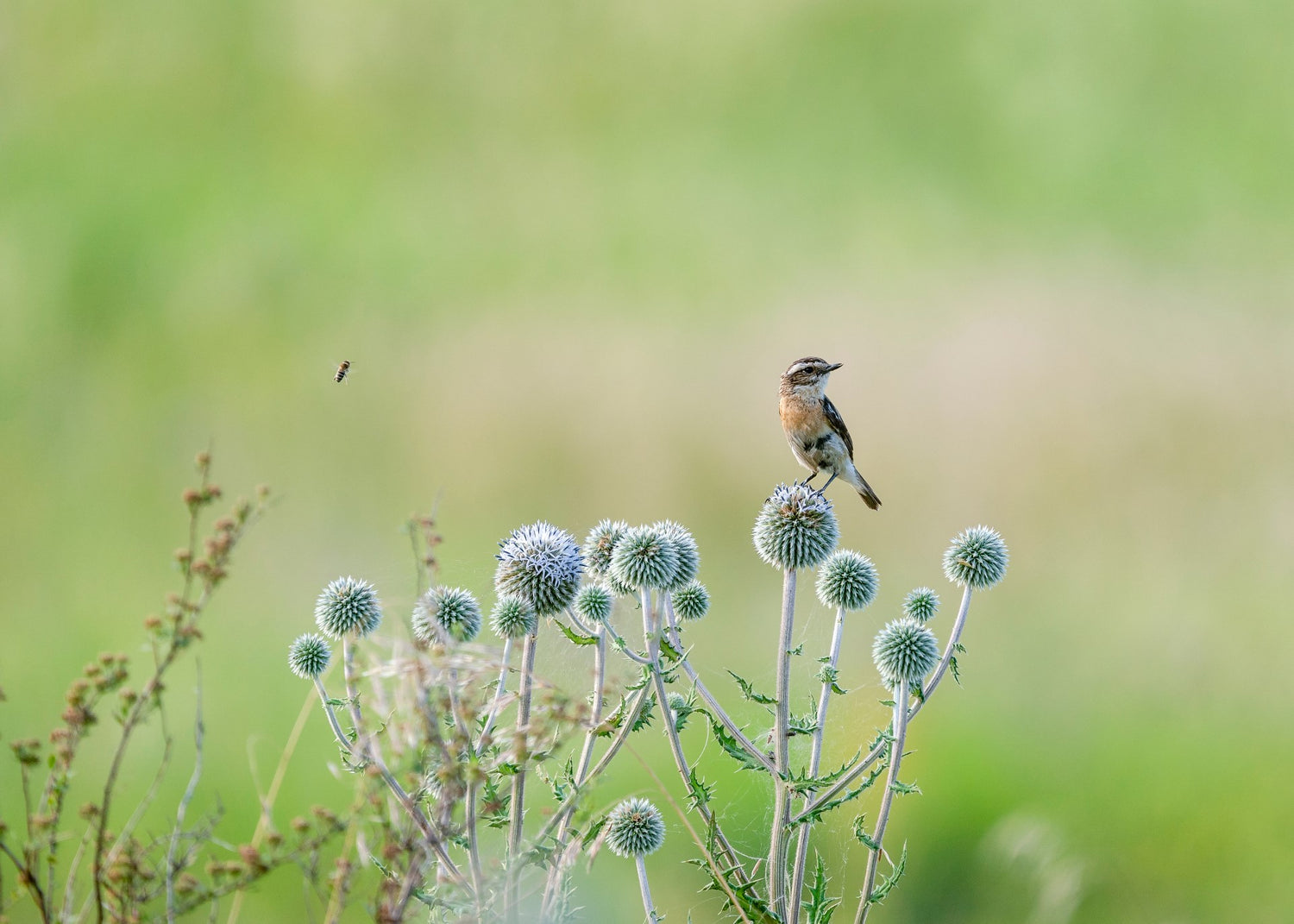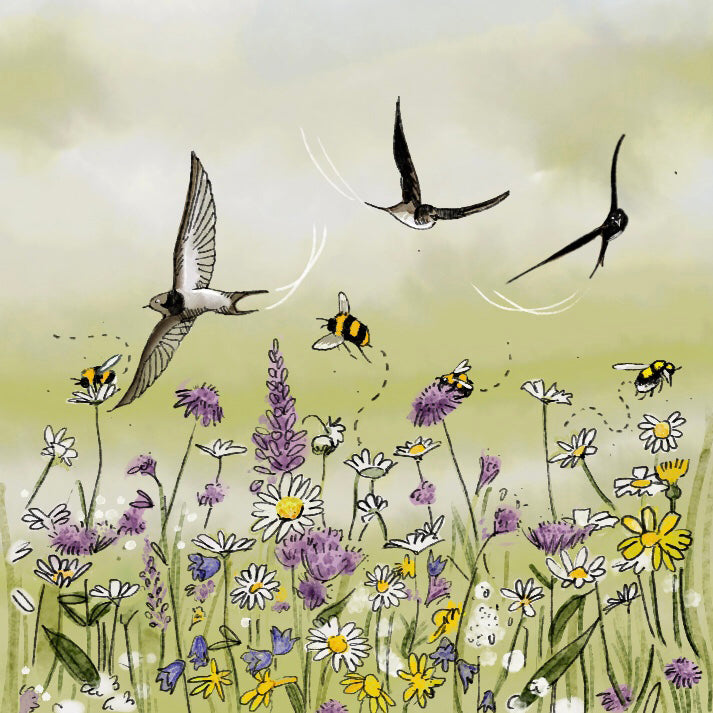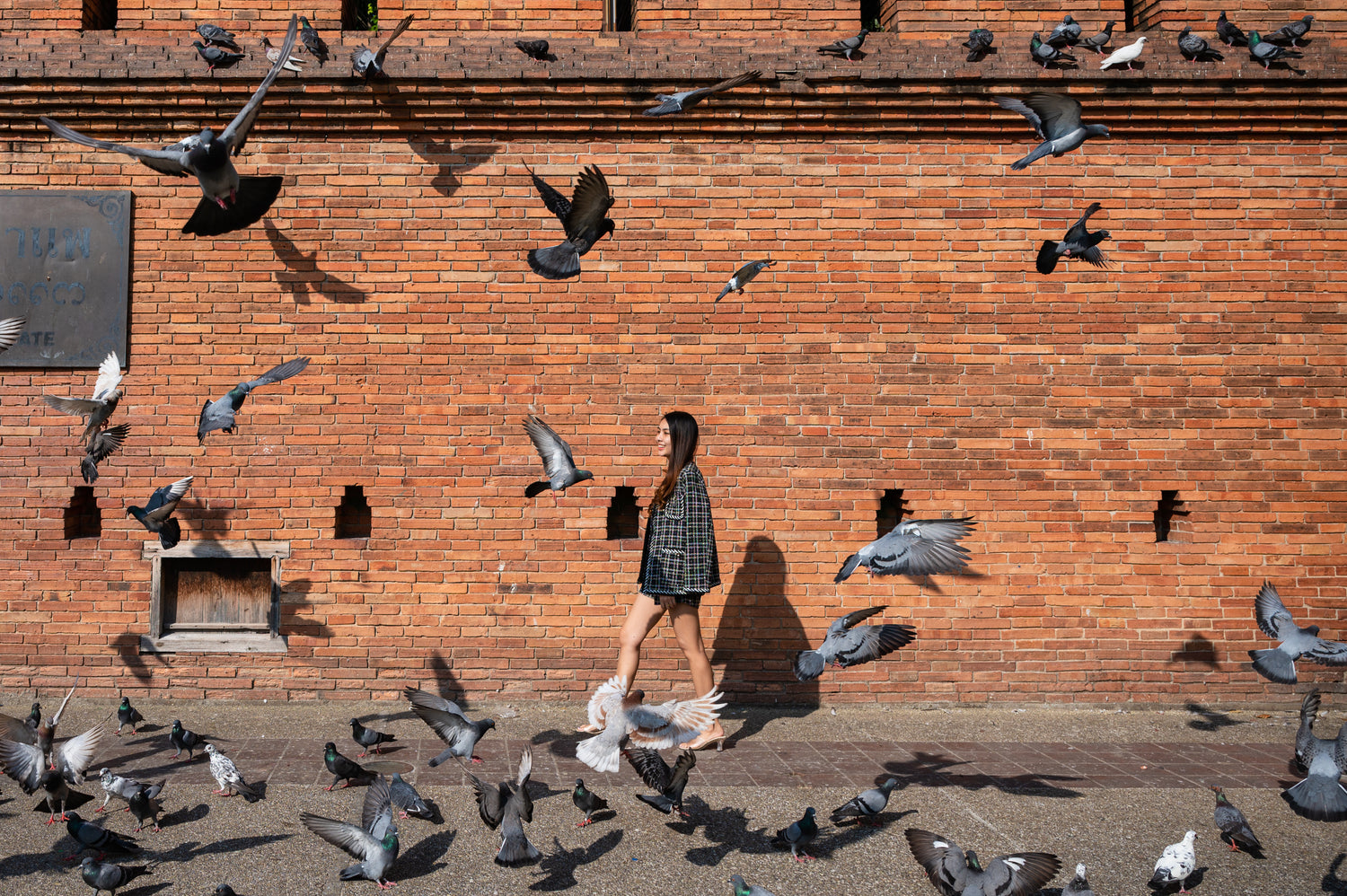Exploring the Stories Behind the Designs

BEHIND THE SAYING
The Birds and The Bees
The phrase traditionally is used as an euphemism to avoid using the word 'sex' in
conversation, when society was a little more coy.
The origin of its usage is not clear, although it seems to be well in use from the late 1800's, and the first claimed printed publication was by John Burrows in 1875, in his essays titled 'Birds and Bees, Sharp Eyes and Other Papers'. The essays sought to present nature to children in text they could understand.

Other Stories...
Let's do it
When the little bluebird
Who has never said a word Starts to sing Spring
When the little bluebell
At the bottom of the dell
Starts to ring Ding dong Ding dong
When the little blue clerk
In the middle of his work
Starts a tune to the moon up above
It is nature that is all
Simply telling us to fall in love
And that’s why birds do it, bees do it
Even educated fleas do it
Let’s do it, let’s fall in love
Cole Porter, 1928

poetry
Nature's Dance
In fields of green,
the bees hum low,
Beneath the sun's warm, gentle glow.
Birds take flight into the sky,
With wings spread wide,
they soar high'
In petals deep, where secrets lie,
The bees' soft buzz becomes a sigh.
The world in motion, day by day,
Nature's dance, in bright array.

bad rap
Hello George!
Many people believe that the Magpie is a bringer of bad luck and it is the norm to see someone saluting magpies to repel the bad luck. It has also has a reputation of being a thief, attracted to shiny objects. This is in fact not true. The magpie does steal eggs from other birds' nests but other birds are known to do this too. Like most superstitions have foundations in religious stories, and the magpie is no different. The magpie refused to go on the ark, and didn't comfort Jesus on the cross.
There is of course the famous rhyme that people recite when they see magpies..One for Sorrow, Two for Joy, and so forth. There are many references on the Internet, and this is the most concise one I have found

flying rats
From War Heroes to Flying Rats
The image of feral pigeons invading our urban centres perpetuate the negative image of pigeons. The fact is that pigeons are the oldest domesticated bird, and renowned for its homing abilities, put to good use during the war. A pigeon called Winkie was awarded the Dicken Medal, the animal equivalent of the Victoria Cross, for saving the crew of bomber crashed in the North Sea.
Pigeons also mate for life, and take a caring role in raising their young.
